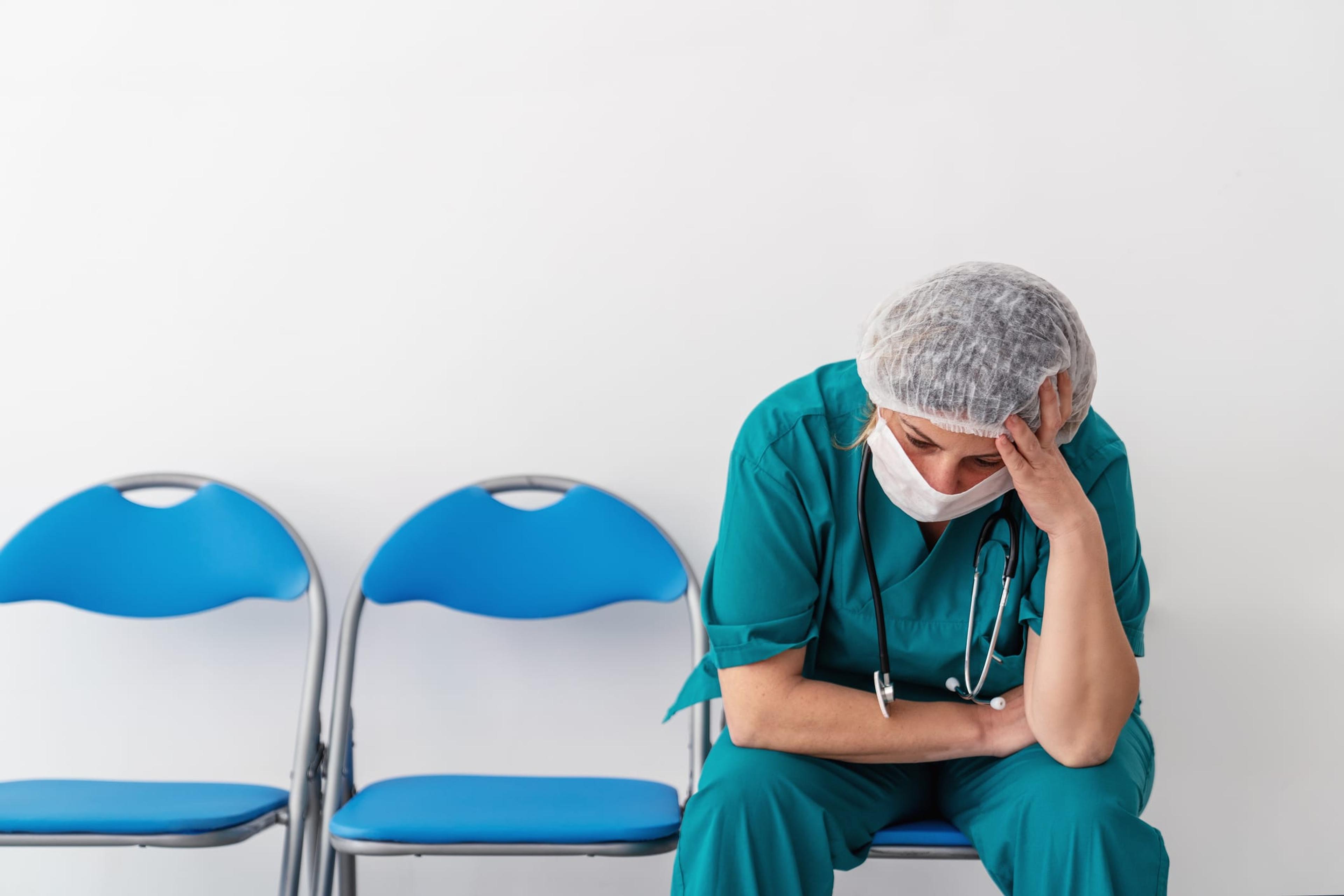Meeting the Unique Mental Health Needs of Health Care Workers
Krystal Clark
| 3 min read

Due to COVID-19, health care workers are facing severe and unprecedented conditions. Not only have many been infected by coronavirus transmission, but those who are physically healthy have struggled to manage the emotional impact of being on the frontlines and away from their families. The Journal of the American Medical Association (JAMA) reports health care workers treating COVID-19 patients are much more likely to develop depression, anxiety, and insomnia. To combat this trend, workers may need unique coping mechanisms that require additional support.
What can families do to help?
The first step is recognizing there are limitations to what you can do to decrease a loved one’s burden. This isn’t a failing on your part. It’s a realistic understanding that what they’re experiencing is abnormal and, in some cases, catastrophic. The best thing families can offer is a stable support system. That means lending an ear or a shoulder to cry on. Be open to listen but don’t push. When off the clock, workers need time to recharge and reset. Introduce them to activities to distract them from the daily grind. Ask them to turn off the news and minimize reminders of the workplace. Encourage them to find positive ways to channel their energy. This could be exercise, video chatting with friends and family, cooking or reading. Anything that allows them to clear their mind and center themselves.
What are signs of a problem?
Not everyone has the same reaction to emotional or mental stress. Depending on severity, some may be unresponsive to home-based techniques. If so, their behavior may suggest a bigger mental health issue. Warning signs can include:
- Feeling numb for increasing periods of time
- Making odd comments that are out of character and don’t make sense
- Growing distant within personal relationships (spouse, parents, friends)
- A drastic change in appetite, eating more or less
- Shutting down and being quiet, isolating
- Not getting enough sleep, or sleeping too much
When should you seek professional help?
You and your loved one’s safety is the main priority. If you feel a person may hurt themselves or others, seek professional help right away. One of the most common signs of self-harm is alcohol or substance use. It’s an unhealthy coping mechanism used to numb both physical and emotional pain. Encourage your loved one to contact their primary care physician to discuss the problem and potential treatment.
Where can you find help?
Check for mental health assistance available at the workplace or through a health plan. Blue Cross Blue Shield of Michigan has a free crisis hotline for emotional support for members and non-members at 833-848-1764. You can get help from a licensed clinician to listen to your concerns and assist you in finding a contracted behavioral health provider. The State of Michigan also has the Health Professional Recovery Program (HPRP), which helps health care workers maintain their credentials, by providing support and intervention. For more information please call 1-800-453-3784 or email: hprp@hprp.org
For the latest updates on COVID-19, including case counts and travel restrictions, visit: Coronavirus Outbreak: What You Need to Know. Read more:
- Feeling Off is Normal Right Now
- Loepp: Be Focused About Caring for your Mental Health
- COVID-19: Answering Your Frequently Asked Questions
Photo credit: SonerCdem





